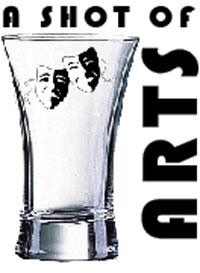King of Benin Addresses UMass Boston Students
April 28, 2008
The campus here at UMass Boston has recently been host to several high level foreign officials recently, including dignitaries from Indonesia and the Prime Minister of England (if you blinked, you missed his visit), but we have never before been host to a king. Never, that is, until His Majesty King Kpoto-Zounme Hakpon III, the Leopard King of Dahomey and Sovereign of the Kingdom of Porto Novo in the West African country of Benin. His Majesty, accompanied by Mr. Bernard Adjibodou who is a priest in the Vodoun tradition, was on campus to make a presentation about spirituality and culture in modern day Africa as well as to discuss the role of traditional “sitt
The event began with King Hakpon’s speech being read in English by Africana Studies professor Jemadari Kamara, as the King is not fluent in English. The King, through professor Kamara, began by explaining the history of Benin from its beginnings as an ancient kingdom and all of the changes that have taken place since. He continued by explaining the rich cultural and political elements of the country that define it, and the way it operates currently both paying deep respect to the past while at the same time assimilating into being a more modern member of the global community.
At the end of the speech, in what was one of the more poignant moments of the ceremony, the King discussed slavery and the role of the Kings of Dahomey in the trans-Atlantic slave trade. He first began by pointing out that before any colonizers arrived on the continent of Africa, slavery was already a part of everyday life. It was very common for not only the monarchy to hold slaves, but for other notables in the kingdom to do so as well. The King was also sure to point out that this was slavery as we think of slavery today, as in a person is a commodity that can be bought and sold and is completely subservient to their owner, as opposed to a “toned down” or “more humane” kind of slavery that was later perverted by Europeans.
However, while this kind of slavery existed before colonization, afterwards it was done in a very different way. Whereas before colonization one became a slave through war or to settle a debt, afterwards, people were hunted like animals and trapped in cages and nets before being hauled back to ships. The King admitted that many of his ancestors had become “tempted” by the great wealth and power that the French colonizers brought with them and were coerced or bribed into assisting them in selling the people of Dahomey into slavery. Once the kings of Dahomey began working with the French, in effect letting the fox into the henhouse, they proved too powerful to get rid of and proceeded to colonize the area and establish themselves as a power for the next half-century.
In addition to the issues of slavery, the functioning of the kingdom of Porto-Novo and its role in modern day Africa , one of the main topics of discussion was the practice of Vodoun. After the King’s speech, Mr. Adjibodou showed a short film in which a Vodoun priest was interviewed standing in front of the sacred Oro Forest and explained some of the elements of the religion. An ancient West African religion, Vodoun made its way west when slaves from Benin who practiced it were taken to Haiti. In Haiti, the religion and its practices were outlawed by a heavily Chrisitian governance and Vodoun went underground where it became what is known by many today as Voodoo. Vodoun practicing slaves brought to America replaced the names of the traditional Vodoun deities, or Orisha, with the names of Christian saints in order to continue practicing their religion without tipping off their slave-masters, thus giving birth to the tradition known as Santeria.
In Western popular culture, specifically in America, Vodoun (as Voodoo) has received a stigma as being a supernatural cult based around curses and spells used for evil (see Voodoo dolls), but Mr. Adjiboudo and the King painted a very different picture. In Benin, Vodoun is not just a religion, but an intricate system of beliefs that governs every aspect of day-to-day operations. It is a life force that runs through every member of the community and provides protection and guidance. In his presentation, Mr. Adjibodou stressed that Vodoun and its complex hierarchy of clergy are relied on by the people to do everything from fixing roads, to curing infertility to making crops grow. Almost every member of the community believes in Vodoun, even if they are not active practitioners. As Mr. Adjibodou explained in a conversation following the presentation, even members of the state political bureaucracy who are publicly Christian will secretly consult Vodoun priests and priestesses when they are desperate enough.
The event itself was very well attended and many of the university’s high level administrators and officials were on hand to witness the momentous event, although the student body was also extremely well represented with some showing up decked out in traditional African clothing. With so many different topics touched on throughout the course of the presentation, everybody took away something different.
Dennis Bogere, a junior in the College of Liberal Arts and native of Uganda, saw this as great step towards global Pan-African unity. “I think it is very important to establish a dialogue between native Africans and Africans in the Diaspora and this was a good start”.
Mike Rugutt, a senior in the College of Liberal Arts, took away a better understanding of Vodoun/Voodoo. “I always thought it was more of a cult, but it’s really a religion.”





















































